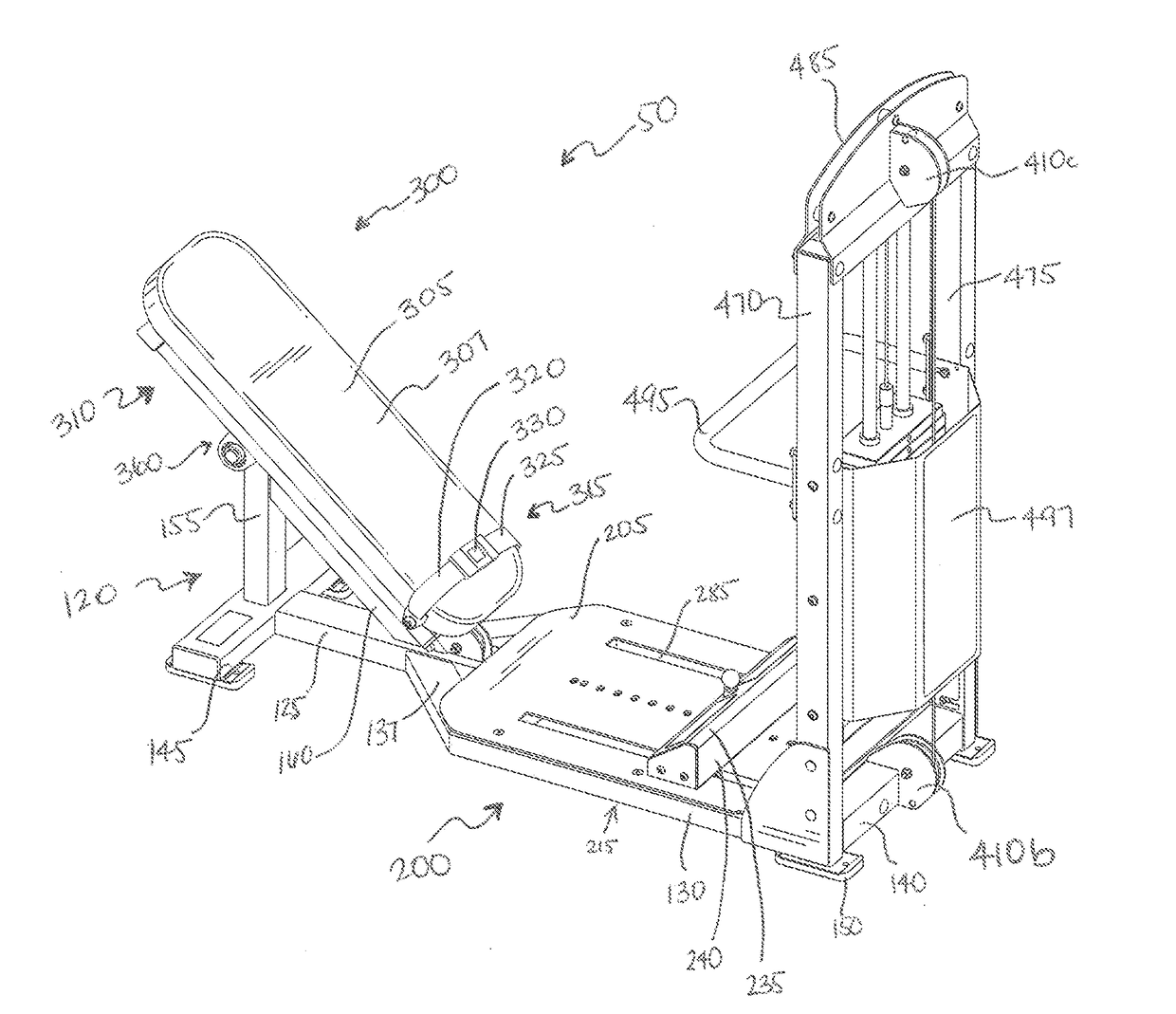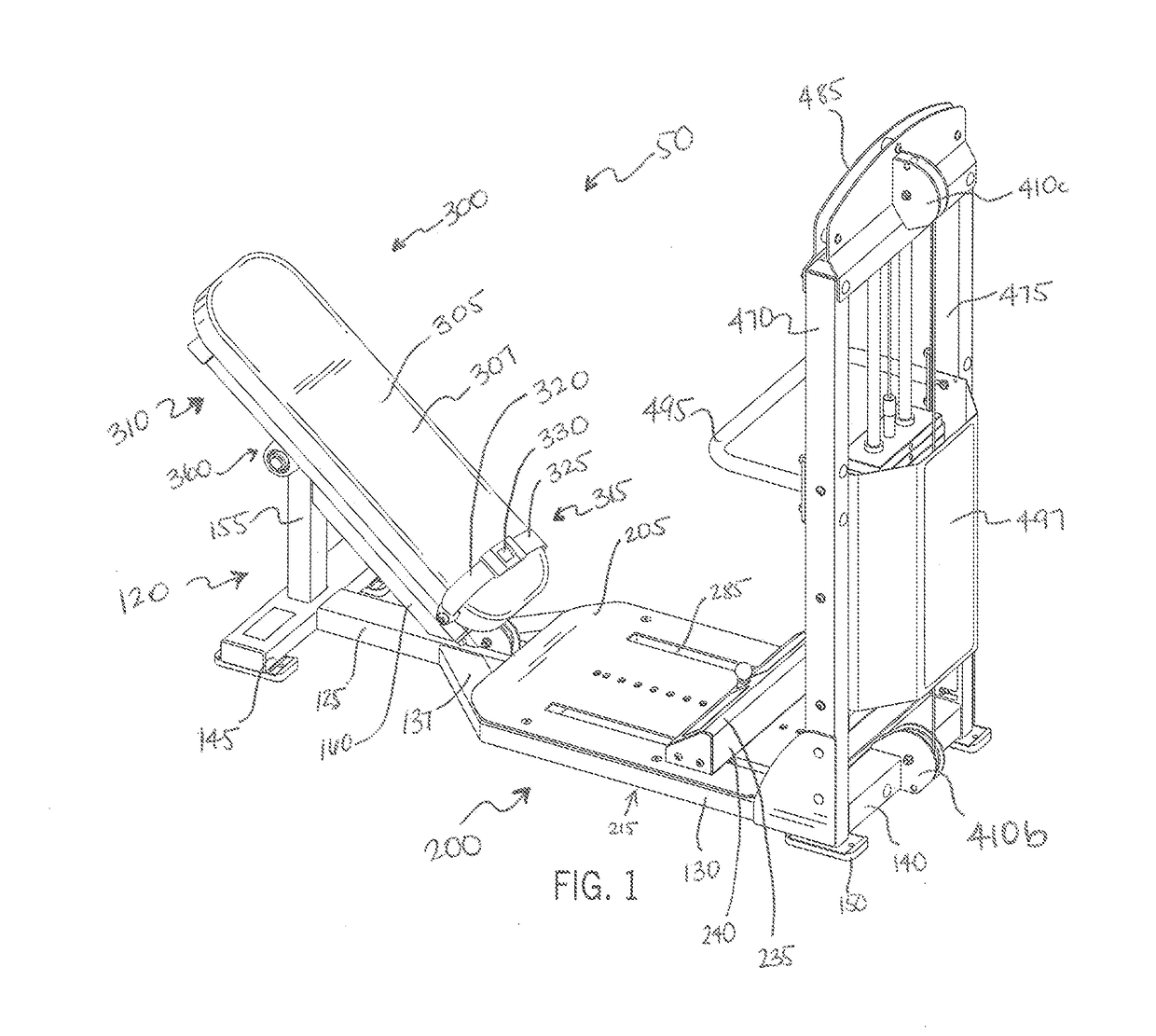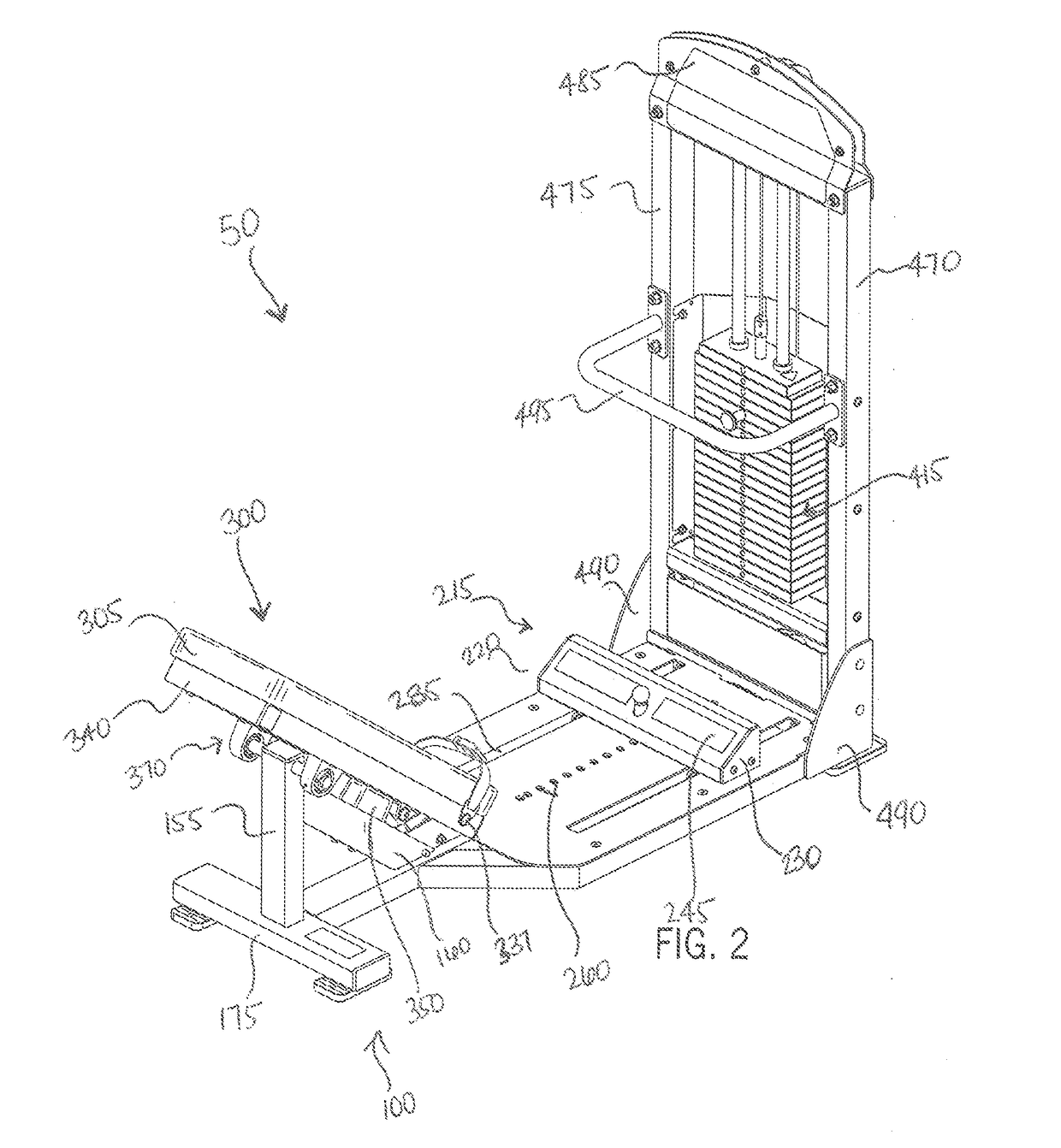Exercise apparatus for performing a gluteal bridge movement
- Summary
- Abstract
- Description
- Claims
- Application Information
AI Technical Summary
Benefits of technology
Problems solved by technology
Method used
Image
Examples
first embodiment
[0046]FIGS. 1-11 depict the apparatus 50 for performing a resisted gluteal bridge movement that is configured for a heavy-use environment, such as in a gym, fitness center or training facility. The exercise apparatus 50 generally comprises (i) a support assembly 100 with a frame assembly 120 and a deck assembly 200; (ii) a bench assembly 300; and, (iii) a resistance assembly 400. The exercise apparatus 50 is designed to be placed on a planar support surface or floor F within the gym, fitness center or training facility. As described in greater detail below, the user or person selects a level of resistance on the resistance assembly 400, secures himself / herself to the bench assembly 300 and then performs at least one repetition of the resisted gluteal bridge movement. Typically, the user performs multiple repetitions of the resisted gluteal bridge movement as part of his / her training regimen.
[0047]Referring to FIGS. 1-11 and as mentioned above, the support assembly 100 includes the f...
second embodiment
[0064]FIGS. 12-19 depict the apparatus 1050 for performing a resisted gluteal bridge movement that is configured for a heavy-to-medium use environment, such as in a gym, fitness center or training facility. The exercise apparatus 1050 generally comprises (i) a support assembly 1100 with a frame assembly 1120 and a deck assembly 1200; (ii) a bench assembly 1300; and, (iii) a resistance assembly 1400. The exercise apparatus 1050 is designed to be placed on a planar support surface or floor F within the gym, fitness center, training facility, or a home. As described in greater detail below, the user or person selects a level of resistance on the resistance assembly 1400, secures himself / herself to the bench assembly 1300 and then performs at least one repetition of the resisted gluteal bridge movement. Typically, the user performs multiple repetitions of the resisted gluteal bridge movement as part of his / her training regimen.
[0065]Referring to FIGS. 12-19 and as mentioned above, the s...
third embodiment
[0080]FIGS. 20-31 depict the apparatus 2050 for performing a resisted gluteal bridge movement that is configured for a lighter use environment, such as in a use in a home gym. The exercise apparatus 2050 generally comprises: (i) a support assembly 2100 with a frame assembly 2120 and a deck assembly 2200; (ii) a bench assembly 2300; and, (iii) a resistance assembly 2400. The exercise apparatus 2050 is designed to be placed on a planar support surface or floor F within the gym, fitness center, training facility, or a home. As described in greater detail below, the user or person selects a level of resistance on the resistance assembly 2400, secures himself / herself to the bench assembly 2300 and then performs at least one repetition of the resisted gluteal bridge movement. Typically, the user performs multiple repetitions of the resisted gluteal bridge movement as part of his / her training regimen.
[0081]Referring to FIGS. 20-31 and as mentioned above, the support assembly 2100 includes ...
PUM
 Login to View More
Login to View More Abstract
Description
Claims
Application Information
 Login to View More
Login to View More - R&D
- Intellectual Property
- Life Sciences
- Materials
- Tech Scout
- Unparalleled Data Quality
- Higher Quality Content
- 60% Fewer Hallucinations
Browse by: Latest US Patents, China's latest patents, Technical Efficacy Thesaurus, Application Domain, Technology Topic, Popular Technical Reports.
© 2025 PatSnap. All rights reserved.Legal|Privacy policy|Modern Slavery Act Transparency Statement|Sitemap|About US| Contact US: help@patsnap.com



